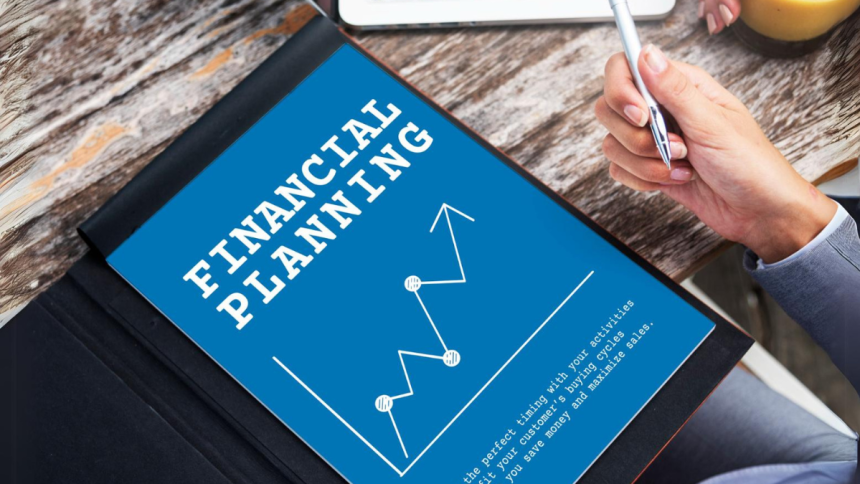In the hustle and bustle of everyday life, it’s easy to feel like planning for anything more than a few days ahead is overwhelming. With bills to pay, work commitments, and social events filling up your schedule, the idea of sitting down to plan out your finances might not sound like the most exciting task. So, you might wonder: does financial planning really help? The short answer is yes, and in more ways than you might think.
Financial planning isn’t just about creating a budget or setting money aside for a rainy day. It’s about taking control of your financial future and setting yourself up for success. And if you’re dealing with debt, it becomes even more crucial. Exploring debt relief programs can be a key part of your financial plan, helping you manage and reduce what you owe. Let’s dive into five reasons why financial planning plays such an important role in our lives.
1. Provides Clarity and Direction
One of the biggest benefits of financial planning is that it provides you with a clear roadmap for your money. Without a plan, it’s easy to feel like you’re just drifting from one paycheck to the next, not really sure where your money is going. By taking the time to set financial goals and outline a plan to achieve them, you gain a sense of direction and purpose.
Whether your goals include paying off debt, saving for a vacation, or investing for retirement, having a plan helps you stay focused and motivated. It’s like having a GPS for your finances—when you know where you’re headed, it’s easier to make decisions that align with your long-term objectives. Plus, having a plan can reduce the anxiety that often comes with uncertainty about your financial future.
2. Helps You Prepare for the Unexpected
Life is full of surprises, and not all of them are good. An unexpected car repair, medical bill, or job loss can quickly derail your finances if you’re not prepared. Financial planning helps you build a safety net for these kinds of events. By creating an emergency fund as part of your financial plan, you can have peace of mind knowing that you have a cushion to fall back on when things don’t go as planned.
Even if you’re working on paying down debt, setting aside a small amount each month for an emergency fund can be a smart move. It can prevent you from needing to rely on credit cards or loans in a crisis, which can add to your debt and create more financial stress. A well-thought-out financial plan considers both your current needs and the unexpected, helping you navigate life’s bumps with greater ease.
3. Encourages Smart Spending and Saving Habits
Financial planning is more than just a budgeting exercise; it’s about making intentional choices with your money. When you have a plan in place, you’re more likely to think twice before making impulse purchases or overspending in certain areas. Knowing that each dollar has a purpose, whether it’s for paying bills, saving for a goal, or investing, can encourage you to be more mindful about how you spend and save.
Having a plan also helps you identify areas where you can cut back or make adjustments. For example, you might discover that you’re spending more on dining out than you realized, and decide to redirect some of that money toward paying off debt or increasing your savings. By making these small, intentional changes, you can make a big difference in your overall financial health.
4. Offers a Path to Financial Freedom
One of the ultimate goals of financial planning is to achieve financial freedom—the point where you have enough savings, investments, and income streams to support your lifestyle without being dependent on a paycheck. This doesn’t happen overnight, but having a financial plan is the first step toward making it a reality.
A solid financial plan includes strategies for paying off debt, building savings, and investing for the future. If you’re currently dealing with debt, creating a plan to tackle it head-on can be incredibly empowering. Whether it’s through budgeting, increasing your income, or exploring debt relief programs, having a strategy in place can help you take control of your finances and work toward a more secure future.
5. Reduces Stress and Improves Well-being
Let’s face it: money can be a major source of stress. Worrying about bills, debt, and not having enough for the future can take a toll on your mental and emotional well-being. Financial planning can help alleviate some of that stress by giving you a sense of control over your financial situation. When you have a plan, you’re not just reacting to financial challenges as they come; you’re proactively managing them.
By setting goals, creating a budget, and tracking your progress, you can feel more confident about your financial future. This sense of control can improve your overall well-being, allowing you to focus on other important areas of your life, like spending time with family, pursuing hobbies, or investing in personal growth. In short, financial planning isn’t just about money; it’s about creating a life that feels balanced and fulfilling.
Conclusion: Taking Charge with Financial Planning
The role of financial planning goes far beyond just crunching numbers. It’s about giving yourself the tools and strategies you need to take control of your financial future. From providing clarity and direction to helping you prepare for the unexpected, financial planning plays a crucial role in achieving both your short-term and long-term goals.
Whether you’re just starting out or looking to refine your financial strategy, it’s never too late to create a plan that works for you. And if you’re dealing with debt, incorporating debt resolution programs into your plan can be a smart way to manage and reduce what you owe. Remember, financial planning is an ongoing process, and the more you engage with it, the more empowered you’ll feel to make the choices that lead to a secure and fulfilling future.
Lynn Martelli is an editor at Readability. She received her MFA in Creative Writing from Antioch University and has worked as an editor for over 10 years. Lynn has edited a wide variety of books, including fiction, non-fiction, memoirs, and more. In her free time, Lynn enjoys reading, writing, and spending time with her family and friends.















